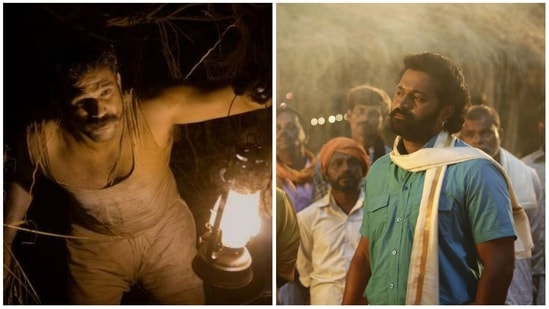Anand Gandhi calls Kantara celebration of toxic masculinity. Here's why he is right
Kantara and Tumbbad have been compared and called similar ever since the former released in September. However, they are a lot different in how they treat masculinity.
Rishab Shetty's Kantara has found its way to become one of the biggest pan-Indian hits of the year. Ever since its release in September, the modest Kannada language film has seen an unprecedented, overwhelmingly positive response. Post its digital release on Prime Video, the mythological drama has managed to sustain that buzz. Kantara's narrative meditation on myth and local folklore has been particularly hailed, with some comparing the film to the 2018 period horror film Tumbbad, directed by Rahi Anil Barve. Yet, Tumbbad's creative director Anand Gandhi was having none of this comparison when he tweeted that Kantara is “nothing like” his film. He further elaborated saying how Tumbbad uses "horror as an allegory of toxic masculinity and parochialism" whereas Kantara "is a celebration of these." Also read: Anand Gandhi says Kantara celebrates ‘toxic masculinity’, is nothing like his Tumbbad

The tweet garnered a strong reaction with many pointing out the needlessness of bringing in the template of masculinity in the conversation. Yet can it be denied that both the films have complicated male protagonists at the centre? Both Shiva in Kantara and Vinayak in Tumbbad are flawed male individuals, yet the treatment of them in both these films are vastly different. Early in Rishab Shetty's Kantara, the protagonist Shiva (played by Shetty himself) sets his eyes on Leela (Saptami Gowda)- the beautiful village belle who has returned to the kola festival after having completed her training. Already a little drunk by this time, he stalks Leela and follows her to the place where she goes to wash her hands. "You might have completed your training," he says. "No need to get cocky with me!" Then, he goes ahead and does the unthinkable- pinches her hips and then runs away. Leela is aghast, yet her expression is telling. She knows this is normal. The next morning, when Shiva sees that Leela has brought her father to meet him right infront of his house he fears that he will be punished for what he did last night. Instead, Leela's father is clueless. Leela's father winks, and nonchalantly proclaims that even he did the same as Shiva at his age. There, you have it- eve teasing normalized at a generational level.
The generational male gaze is also present in Rahi Anil Barve's Tumbadd, with both Vinayak (Sohum Shah) and his son catering to a deeply problematic fetishization of women. Vinayak openly keeps a mistress in his home and barely treats his wife with any respect. Like Vinayak, his son grows up to see women as mere caretakers of the home not suitable to know about the economics of the house. When she asks him what did father and son attempt at Tumbbad together, the son replies to his mother to take care of the household chores, and leave those matters between him and his father. In another scene that arrives soon after, he makes his point clear to his father's mistress that from now on, he will also be there with her. When the woman laughs at his audacity and asks him what is his age, he is quick to respond- does it really matter to her?
The difference lies in the way both these films treat these problematic male characters. In Kantara, Shiva ultimately turns into a demigod- his actions have no consequences whatsoever in the way the villagers treat him at the altar of godly valour. Whereas in Tumbbad, Vinayak suffers because of his greed, and even though he shows some signs of guilt, he ultimately dies. The years of harassment, bullying and chauvinism are all ingrained in his acceptance of death, when Vinayak tells his son to set him on fire. Tumbbad does not glorify the beastly attitude of Vinayak towards the women in his life. Meanwhile in Kantara, Shiva's actions are normalized as charismatic and heroic- Leela ultimately falls in love with him and even chooses to leave her job to fan his ego. If Shiva is destined to become a godly figure, then his toxic masculinity is a thing of unquestionable pride. At no point in the film does he reflect on the predatory and harmful gaze on Leela. When eve teasing ultimately leads him to the woman he wants, why would he want to change?
The huge, pan-Indian success of Kantara is a significant testament to the way audiences perceive a film that hides, beneath its vivid portrayal of the mythological forces that are rooted in Indian cultures, an uncomfortable reality where female characters are continued to be treated with such disgrace. Anand Gandhi's point is clear and precise, there is a thin line that separates glorification from disfavour. It is on us, the audience, to decide which side we want to favour.
Get more updates from Bollywood, Hollywood, Music and Web Series along with Latest Entertainment News at Hindustan Times.



